14 Unspoken Cruise Rules You Should Know—Plus 3 You Absolutely Must Follow
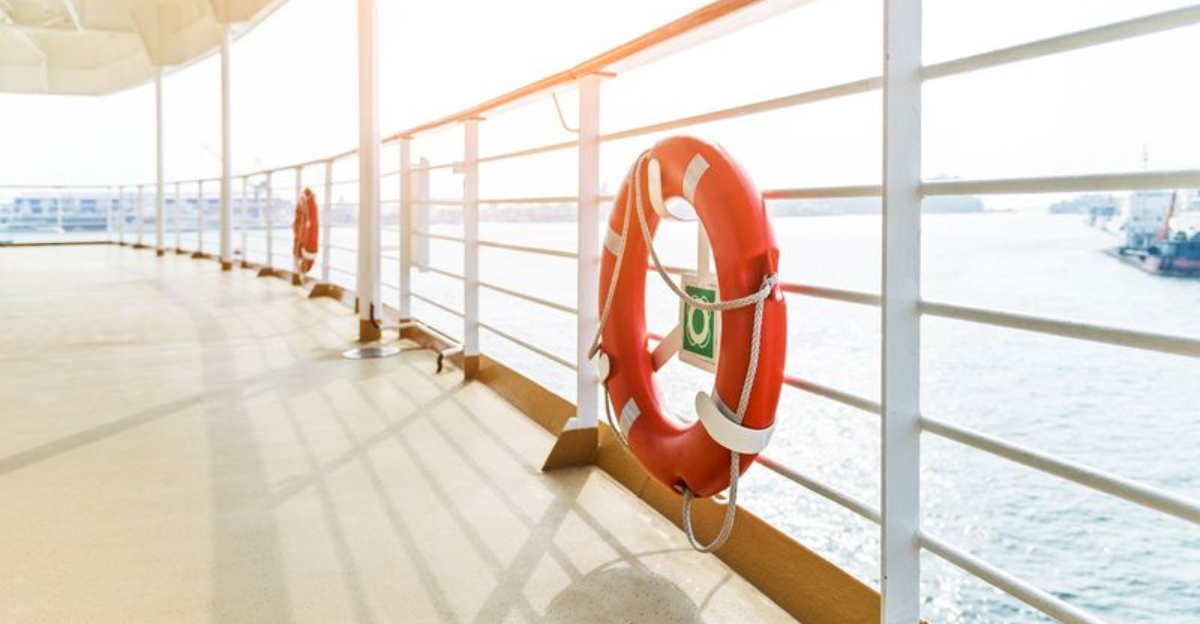
Booking a cruise? It’s easy to get caught up in the excitement of exotic ports, endless buffets, and ocean sunsets—but don’t overlook the onboard etiquette that makes the whole experience smoother for everyone. Sure, you’ll hear the safety rules loud and clear (hello, muster drill!), but cruise culture also has its own unspoken codes.
Ever wondered if it’s okay to save a deck chair all day with your towel? Or how formal is “formal night” really? Spoiler: common courtesy goes a long way when you’re sharing a floating city with thousands of fellow travelers.
Here’s your go-to guide for navigating cruise life like a seasoned sailor—covering both must-follow rules and etiquette tips that keep the good vibes flowing from bow to stern. Ready to cruise with confidence?
1. Don’t reserve loungers with towels
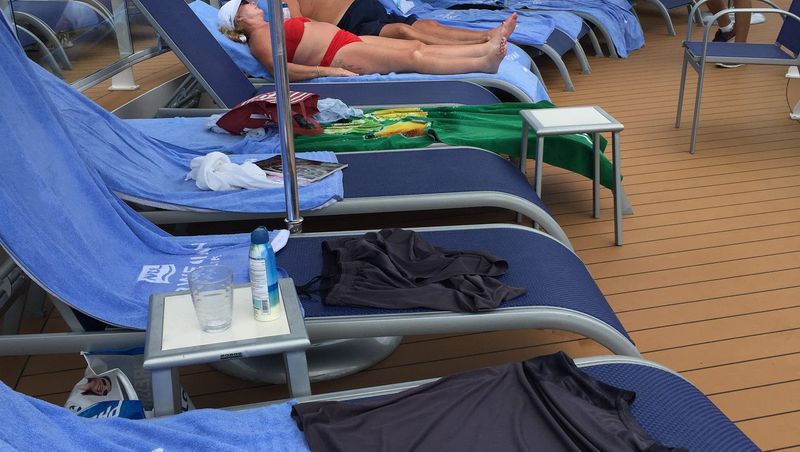
Chair hogging frustrates fellow passengers who just want to relax by the pool. Placing your towel on a lounger at 7 AM then disappearing for hours is considered bad form on cruise ships.
Most cruise lines have policies against this practice, and staff may remove items from unattended chairs after 30-60 minutes. Instead, only claim a chair when you’re actually ready to use it.
If you need to leave briefly, ask someone nearby to watch your spot or take your belongings with you. Everyone deserves fair access to those prime poolside spots!
2. Be on time for excursions

Running late for shore excursions creates a domino effect of delays for everyone involved. Tour guides have carefully planned itineraries, and your tardiness can force the group to rush through attractions or miss them entirely.
Set multiple alarms if needed and plan to arrive at the meeting point 15 minutes early. Remember that ship time might differ from local time in port.
The excursion won’t wait for stragglers—the bus really will leave without you! Being punctual shows respect for your fellow travelers who made the effort to be on time.
3. Keep noise down in hallways
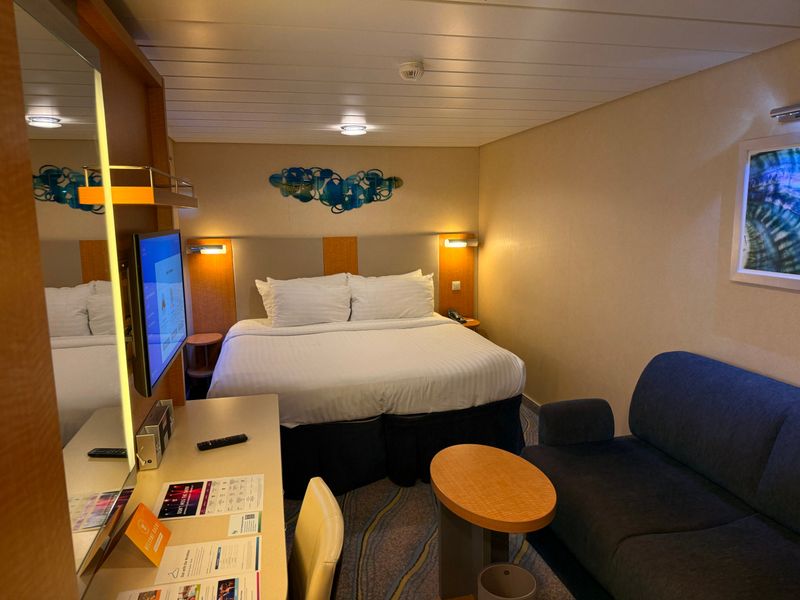
Cabin hallways amplify sound in surprising ways. Your normal conversation can sound like a megaphone announcement to someone trying to nap inside their cabin.
Many passengers work different schedules or deal with jet lag, meaning someone is always trying to sleep regardless of the hour. Children particularly need reminders that running and shouting in corridors disturbs others.
Walking quietly and speaking in hushed tones when traversing hallways, especially early morning or late night, demonstrates consideration for your shipmates. Those paper-thin walls hide no secrets—from conversations to door slams!
4. Tip staff generously
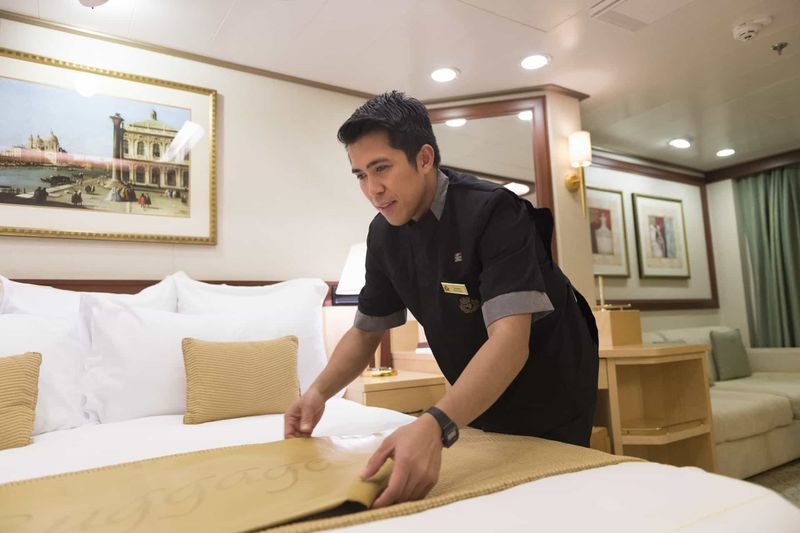
Cruise staff work incredibly long hours, often seven days a week for months at a stretch. Your stateroom attendant, dining servers, and bartenders rely on tips to supplement their modest base salaries.
While many cruise lines add automatic gratuities to your bill, consider tipping extra for exceptional service. A few dollars here and there makes a meaningful difference to crew members who are far from home.
Cash tips are especially appreciated since they’re received immediately rather than through the payroll system. Recognizing good service financially encourages the attentive care that enhances your vacation experience.
5. Don’t overcrowd elevators
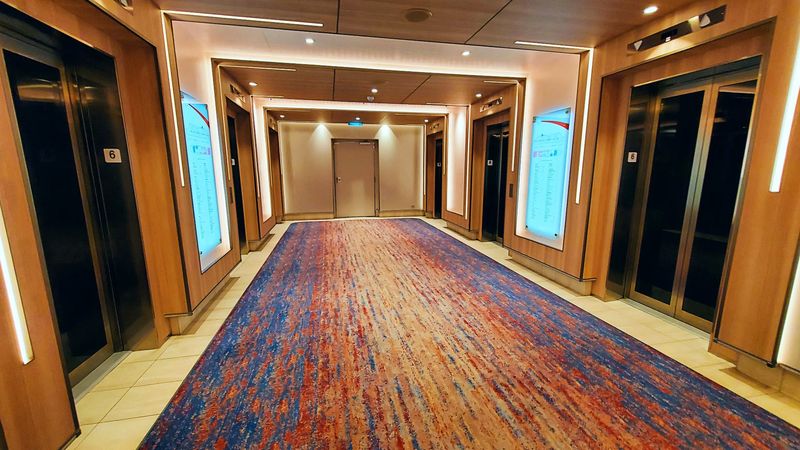
Elevator etiquette becomes crucial when thousands of passengers need to move between decks. Waiting until everyone exits before attempting to enter shows basic courtesy.
During peak times like embarkation, disembarkation, or before dinner, consider taking the stairs if you’re physically able. Even walking up or down a few decks helps reduce congestion. If you notice the elevator is already full, wait for the next one instead of squeezing in.
Nobody enjoys being pressed against strangers in a tiny metal box! Remember that passengers with mobility issues, families with strollers, and crew members with carts depend on elevators.
6. Dress appropriately on formal nights

Formal nights create a special atmosphere that many cruisers look forward to experiencing. Packing at least one nice outfit shows respect for the tradition and enhances the elegant ambiance.
Men typically wear suits or slacks with button-down shirts, while women often choose cocktail dresses or dressy separates. If you absolutely hate dressing up, most ships offer casual dining venues as alternatives on these evenings.
The main dining room may enforce the dress code, turning away guests in shorts, flip-flops, or tank tops. Bringing one formal outfit takes minimal suitcase space but allows you to participate fully in these memorable evenings.
7. Use hand sanitizer frequently

Norovirus and other illnesses spread rapidly in confined spaces like cruise ships. Those hand sanitizer stations positioned throughout the ship aren’t just decorative—they’re your first line of defense against getting sick.
Make a habit of sanitizing before eating, after using restrooms, and when returning to the ship from port. Crew members often stand at dining venue entrances with sanitizer dispensers for good reason. Washing hands thoroughly with soap and water provides even better protection when possible.
Your diligence protects not just yourself but everyone onboard, as one outbreak can affect hundreds and potentially cut your vacation short.
8. Respect buffet lines

Buffet etiquette prevents unnecessary frustration during mealtimes. Cutting the line or reaching across other diners creates tension in what should be a pleasant dining experience.
Take only what you’ll eat, as food waste on cruise ships is substantial. If you want to try something, take a small portion first—you can always go back for seconds! Use the provided serving utensils rather than your personal silverware, and if you touch food, take it.
Patience pays off in buffet lines; rushing only creates chaos and spillage. Remember that most buffets offer identical selections on both sides to reduce waiting times.
9. Avoid loud phone calls in quiet zones

Libraries, card rooms, and adult-only retreats exist for passengers seeking tranquility away from the high-energy areas. Taking loud phone calls in these spaces disrupts the peaceful atmosphere others are trying to enjoy.
Step out to your balcony, an empty deck space, or your cabin for conversations. Many ships designate specific areas for connectivity where calls won’t bother others. If you must take an urgent call, speak quietly and keep it brief.
The same courtesy applies to video chats—nobody wants to hear both sides of your conversation with folks back home while they’re trying to read or relax in a quiet zone.
10. Don’t slam cabin doors
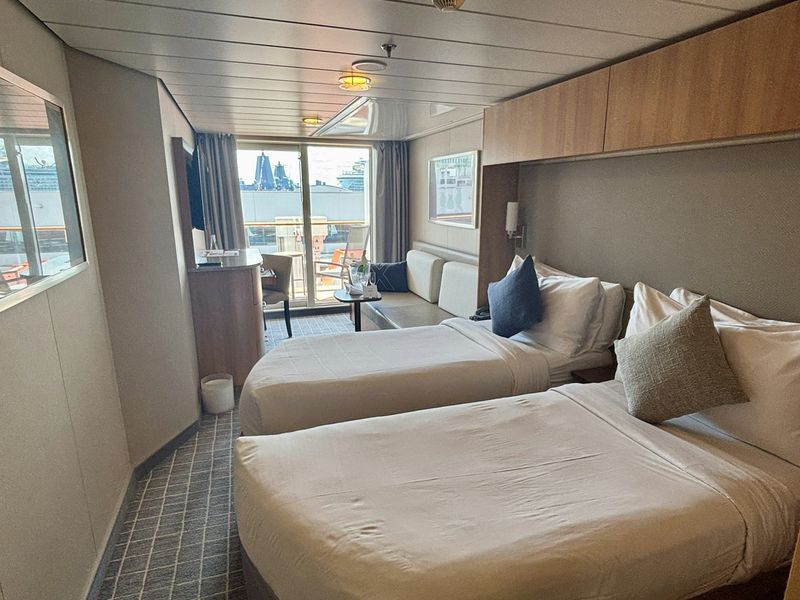
Cabin doors are designed to close automatically for safety reasons, but they don’t need to slam! Holding the door until it gently latches takes just seconds but prevents disturbing neighbors.
Late-night door slams rank among cruisers’ top complaints, especially in hallways where sound echoes dramatically. Teaching children to close doors carefully helps everyone enjoy uninterrupted sleep.
The same courtesy applies to balcony doors, which can create startling bangs in high winds. Always secure your balcony door when leaving your cabin to prevent it from slamming repeatedly during unexpected weather changes.
11. Follow dining room etiquette
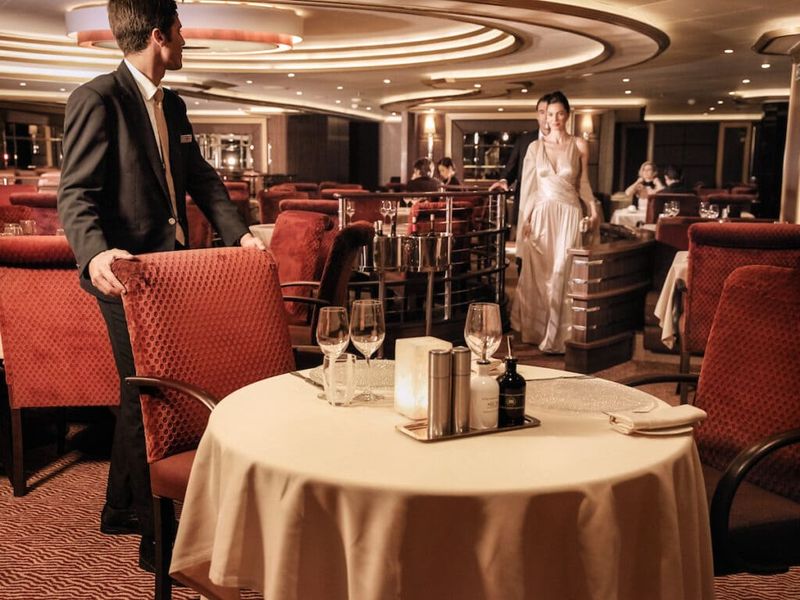
Dining rooms offer more than just food—they provide a refined experience central to cruise traditions. Arriving on time for your seating prevents kitchen backups and shows respect for your tablemates and servers.
Cell phones should be silenced and kept off the table. If you must take photos, do so discreetly without flash photography that disturbs other diners. Special dietary requests should be made in advance rather than during service.
If sharing a table with strangers, introduce yourself and engage in polite conversation—you might make new friends! Remember that servers juggle multiple tables, so patience with timing between courses shows understanding.
12. Don’t save seats at shows
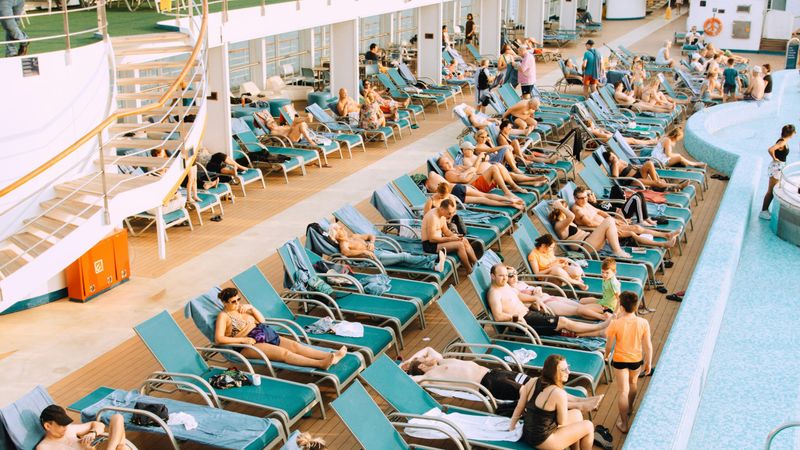
Theater seating becomes competitive for popular shows, but holding numerous seats for late-arriving friends creates unnecessary tension. Saving one seat for a spouse who’s grabbing drinks is reasonable—blocking an entire row for people arriving 30 minutes later is not.
Arrive together if your group wants to sit together. Most cruise lines prohibit seat-saving during peak performances. If the theater looks full, move toward the center rather than leaving single seats empty on the ends.
This simple courtesy maximizes capacity so more passengers can enjoy the entertainment. Remember that most shows run multiple times during your cruise if timing doesn’t work for everyone in your group.
13. Respect smoking areas
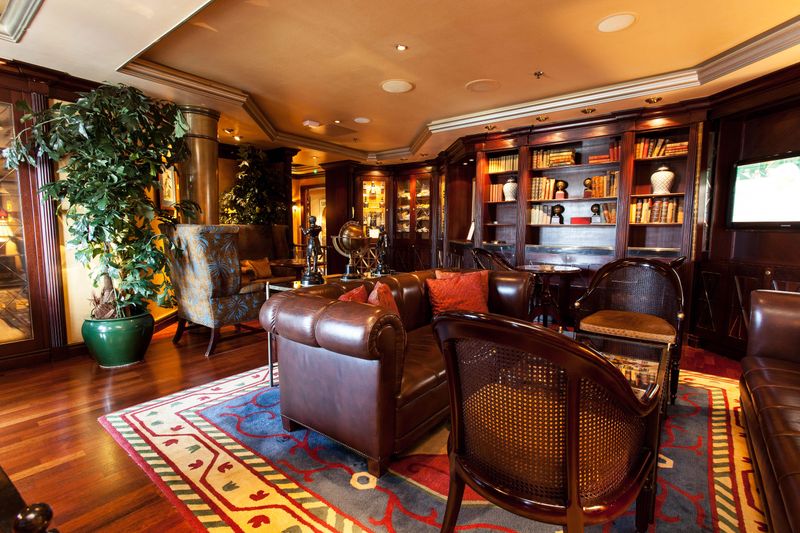
Smoking restrictions exist for safety and comfort reasons on increasingly smoke-free ships. Designated smoking areas are typically limited to certain outdoor decks and sometimes casino sections.
Never smoke on your balcony, even though it feels private—it’s strictly prohibited due to fire hazards and smoke drifting into neighbors’ spaces. E-cigarettes and vaping devices generally fall under the same restrictions as traditional cigarettes.
Disposing of cigarette butts properly in provided receptacles prevents fire risks and keeps decks clean. Respecting these boundaries ensures everyone can enjoy their preferred environment without conflict or safety concerns.
14. Be patient during disembarkation
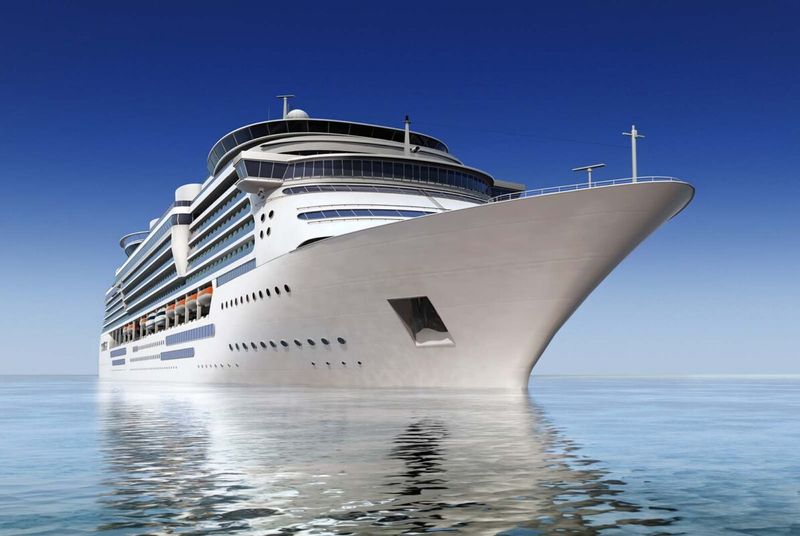
Final disembarkation morning brings out the worst in some passengers. Customs processing thousands of travelers takes time, regardless of how eager you are to catch your flight.
Follow the ship’s organized disembarkation schedule rather than crowding stairwells and hallways hours early. Those with early flights should request priority disembarkation in advance rather than trying to push ahead of others.
Remember that crew members need to prepare for the next cruise sailing that same day. Your patience during this process reflects understanding that everyone faces the same procedures. Consider booking flights later in the day to avoid unnecessary stress about timing.
15. Attend the muster drill (must follow)

Muster drills aren’t optional—they’re mandated by international maritime law for your safety. This crucial exercise teaches you where to go and what to do during an emergency at sea. Missing the drill can result in serious consequences, including possible removal from the ship.
Modern drills are typically more efficient than in the past, with some cruise lines now offering electronic check-ins and video presentations. Pay attention during the demonstration instead of chatting or checking your phone.
The information presented could literally save your life in an emergency situation. Knowing your muster station location and how to properly don a life jacket are essential skills for any cruise passenger.
16. Return to ship before departure time (must follow)
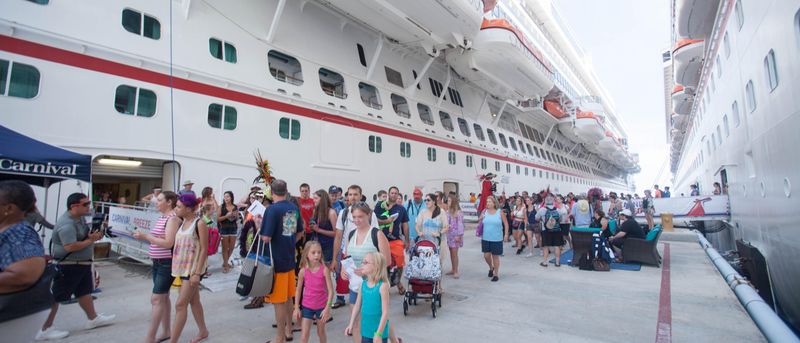
Ships operate on strict schedules and will not wait for late passengers except in rare circumstances. The “all aboard” time listed on your daily program is typically 30 minutes before actual departure to provide buffer time. Set alarms on your phone when exploring ports independently.
Consider the ship’s time, which may differ from local time in port. If you encounter an emergency ashore, contact the ship immediately using the emergency number provided on your cruise card.
Being left behind means arranging your own transportation to the next port at considerable expense—sometimes thousands of dollars—plus dealing with passport control and customs without the ship’s assistance.
17. Follow ship’s safety protocols (must follow)
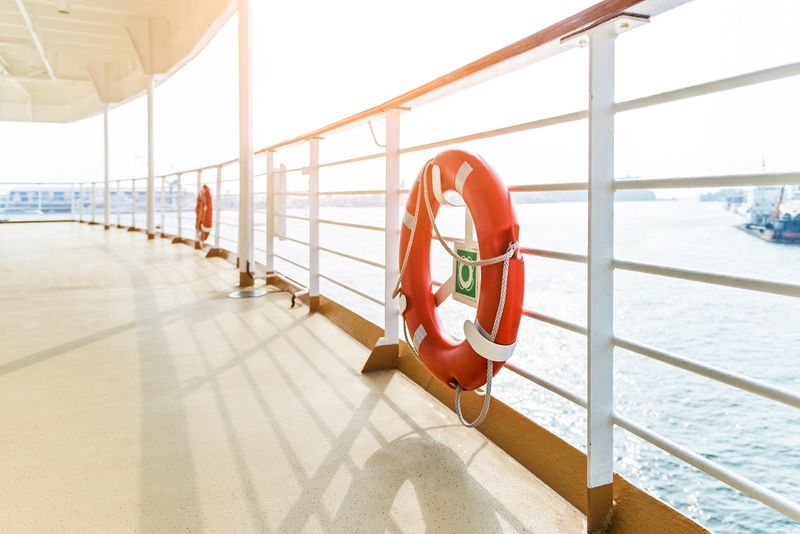
Safety rules exist to protect everyone onboard the massive floating hotel you’re calling home. Leaning over railings, climbing on furniture, or attempting to access restricted areas puts you and others at serious risk.
Weather can change rapidly at sea, making seemingly innocent actions like running on wet decks extremely dangerous. Always obey crew instructions during rough seas, including possible cabin confinement. Never throw anything overboard—even biodegradable items.
This practice harms marine life and violates international maritime law. Tampering with smoke detectors or fire equipment is a serious offense that can result in immediate disembarkation and potential legal consequences.
